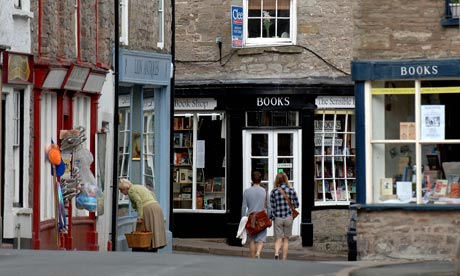
Hi. My name is Jean, and I'm a bookaholic.
I started reading in moderation when I was young, but before I knew it, I couldn't stop. I drove away friends ("Nerd!" they cried), I alienated my family ("Stop reading at the dinner table!") and by the time I reached my late teens, I was studying for a degree in literature.
And yet I went on denying I had a problem, until one winter night, when I found myself stranded on a train for six hours after the engine died on the barren snowy plain between New York and Quebec. Having finished all the books that I'd packed for the journey, and with nothing else to read, I was on the edge of an anxiety attack when I saw it: some long-departed passenger had left a magazine in a seat pocket. Shaking with relief, I reached for it. It was a copy of Hustler. And then – oh, you see, I was desperate – I tried to read it, anyway.
It was a dark time.
But no matter! It seems I am in good company, for last week's Book Industry Conference saw the official stamp of approval given to "bookaholism" as a new cross-industry generic promotional concept. The campaign will include a number of themed slogans – "Class A reading material" and "This book is seriously addictive" – which will be used in promotional materials, such as stickers on book covers, with the aim of increasing the frequency with which existing customers purchase books. The Publishers Association is aiming to roll out the campaign in about six months, with the aim that it will be as successful as the "five-a-day" promotion of fruit and veg. (Whether the PA will also achieve an NHS endorsement of their slogan is not yet confirmed.)
I'm all for promoting reading (and book sales) across the board, but much as I can personally identify with it, the concept of bookaholism gives me pause. Might the insinuation that avid readers are self-abusers actually be less than seductive to those on the fence? It's going to be a challenge for the campaign not to be seen as a trivial, slightly dated attempt to stick a plaster on a wounded industry (although perhaps better than some of the alternatives which were apparently considered, such as "Reading – not just a town in Berkshire"). And I'm also worried that the promotion of bookaholism might seem mildly offensive in some scenarios: a sticker urging readers to become addicted would look a bit gauche if affixed to many of the titles in the "Difficult Lives" section of Waterstone's, for example.
But while I'm dubious about the degree to which the general reading public will be eager to call themselves bookaholics, I do think that the theme of reading-as-addiction is an interesting one which the industry might be wise to explore more closely, as a starting point for the development of some other kinds of new, dynamic marketing concepts. What drives the smallish cohort of readers who are so dependent upon books that we feel shaky and stressed when we've got nothing to read? If the industry could tap into the causes of that kind of behaviour, could that lead to new concepts in terms of how reading could be encouraged to spread like, well, some kind of exotic flu?
I'm particularly curious as to what turns people who are not mad about books when they're growing up into passionate readers as adults. While I was a stereotypically bookish kid (I blame it on my parents, and my asthma) there are plenty of people who take less typical routes, and become passionate about books later in life. And I think they are likely the ones who will have the most interesting stories to tell in terms of what can turn adults from occasional book-buyers into compulsive, passionate – yes, addicted - readers.

